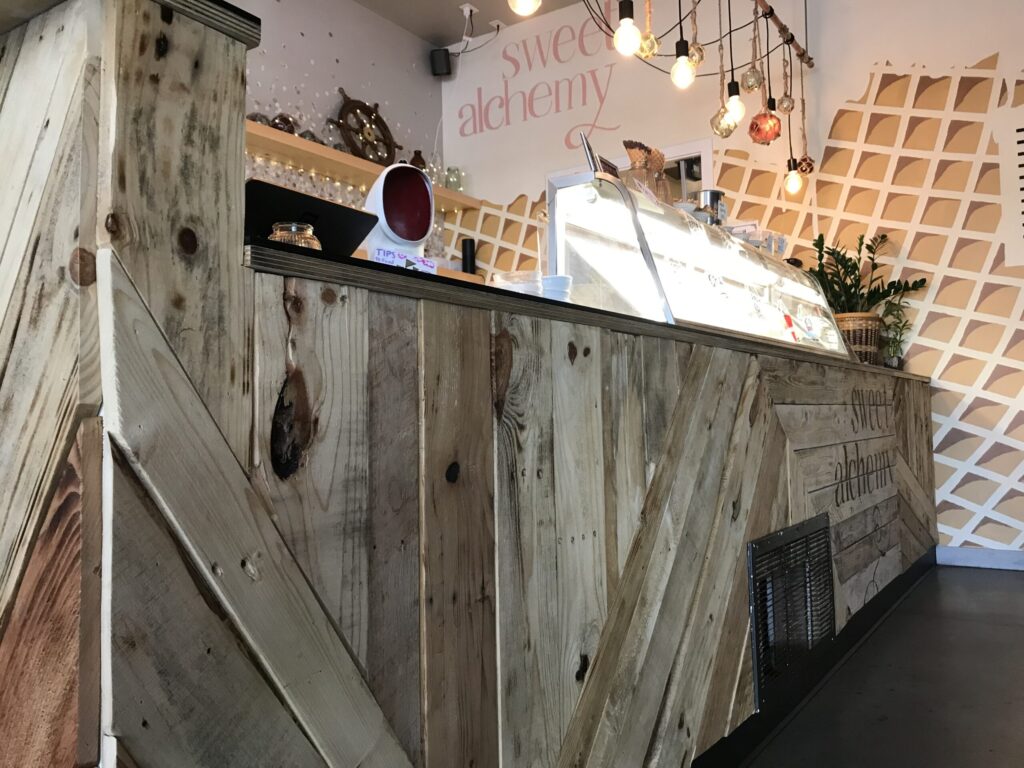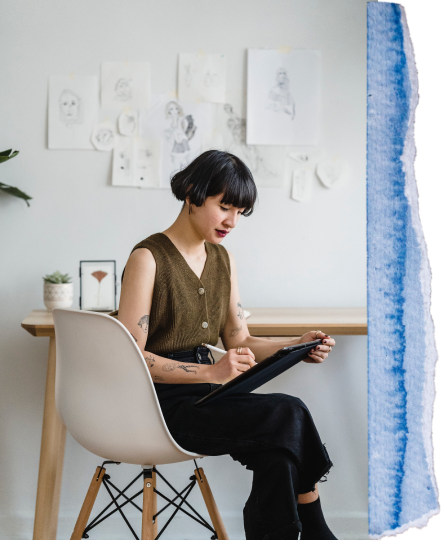Lois Ko is the owner of Sweet Alchemy Ice Creamery which has two locations in Ballard and the U District in Seattle. In our conversation, she shares her journey from being an ice cream scooper to an organic ice cream shop owner, how she’s managed to reduce waste in her business, and her advice for other business owners.
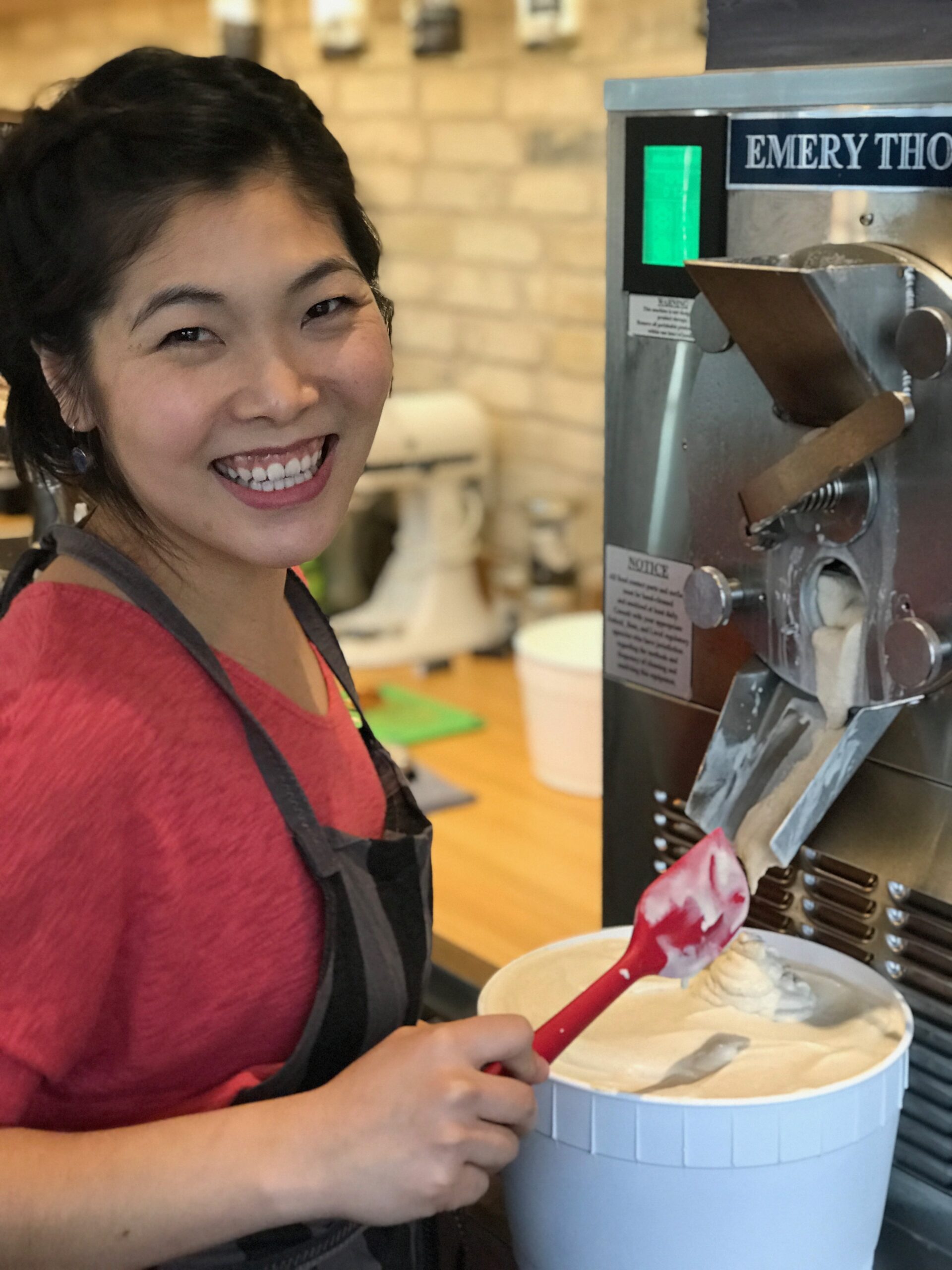 Can you tell me a little bit about yourself and how Sweet Alchemy came to be?
Can you tell me a little bit about yourself and how Sweet Alchemy came to be?
Lois: I came to Seattle to go to UW undergraduate. I had a real-life job and didn’t like it very much. I was actually a scooper at a franchise ice cream shop all through college. I ended up doing that, purchasing the shop, and doing that for 10 years. And then I wanted to be more specific with my ingredients because I had kids and I was very into putting good food into them.
I learned that the franchise whose ice cream I was operating and selling still used hormone milk. That was the point where I fell out of love with them, even though I think that they started off as a great company.
Fast forward and I started my own ice cream shop. I use Fresh Breeze Organic Dairy, a single family farm in Lynden, Washington. They’re 98 miles north of our shop so that’s where I started: with the dairy and my passion for good milk. From there on, I just wanted to do it right. If it was going to be my name behind it, and if I was going to be making it, then I really wanted to do something that I’d be proud of.
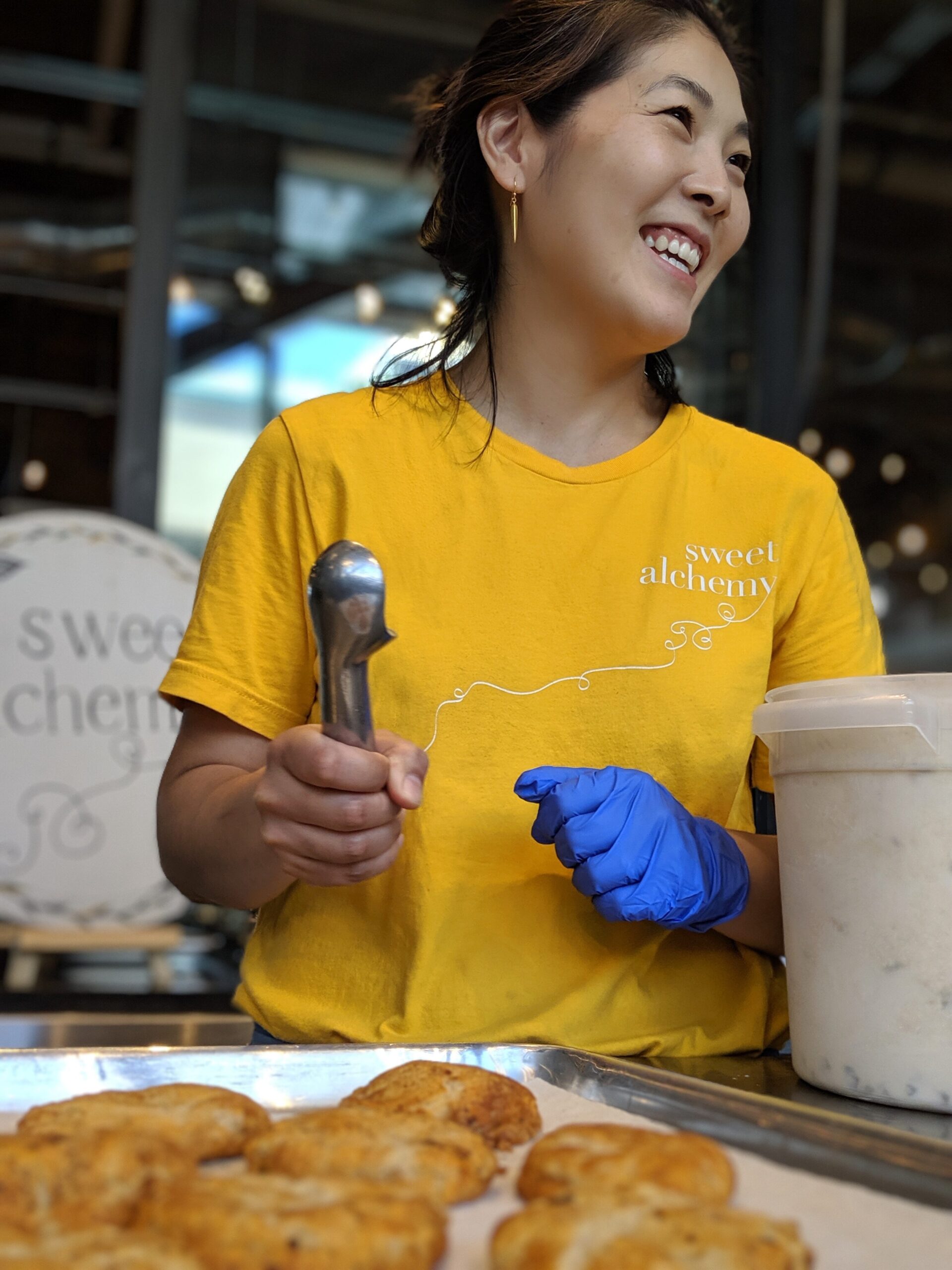
“If it was going to be my name behind it, and if I was going to be making it, then I really wanted to do something that I’d be proud of.”
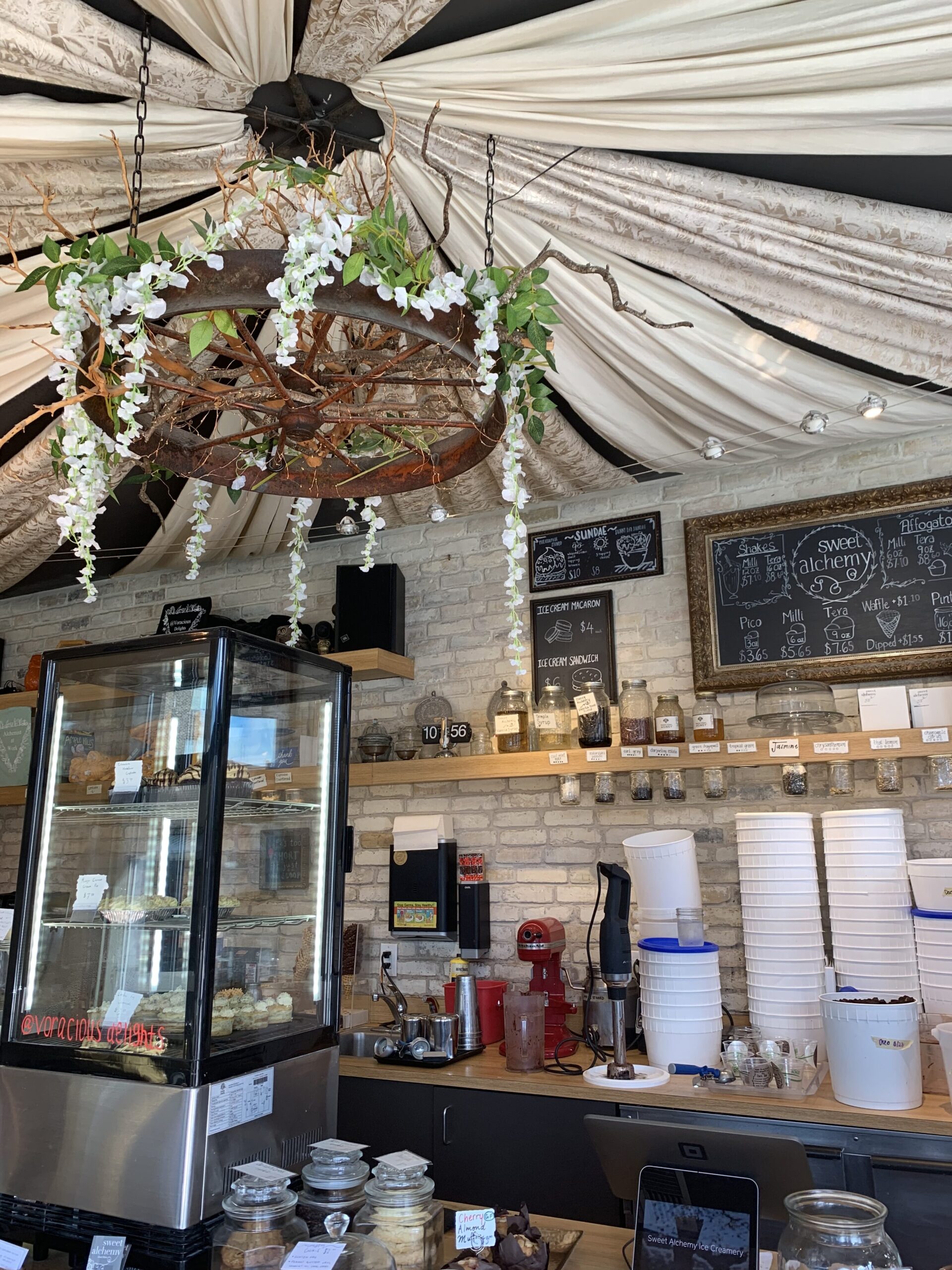
Photo above: This is the UW location of Sweet Alchemy. The “chandelier” is an old barn wheel from Ohio that they found at Ballard Reuse. The back wall is an old Chicago brick building that was rescued and sliced. Their main menu frame is a restored victorian era frame from Four Corners Art & Frame.
I noticed that your shop produces a very small amount of trash. Can you tell me about some of the systems that you have in place to create such little waste?
Lois: I guess I’m just a Seattleite. I went through the phases of trying to reduce waste and trying to minimize plastic. It’s almost impossible in the condition that we live in currently, but trash is my biggest issue. Ice cream is a very high energy product to produce because everything needs to be kept frozen, but I am very into reusing and composting.
A lot of the things that make up our interior design were reused and I purposely selected those materials. The back wall at our shop is a brick building from Chicago that was torn down. The front paneling of both of our shops is made of pallets that were going to be thrown away that I dropped off at my garage, took apart, sanded down, torched, and then veneered. I try to use a lot of materials that would end up in landfills and I try to give it a second life because reusing is currently the best way we divert waste.
We only use compostable cups and at our Ballard location, where we actually have seating, I try to have my employees encourage people to dine in and to use our bowls. The composting is done locally and goes back to our local community.
Would you like to see future blog posts come directly to your inbox?
Sign up for our mailing list!
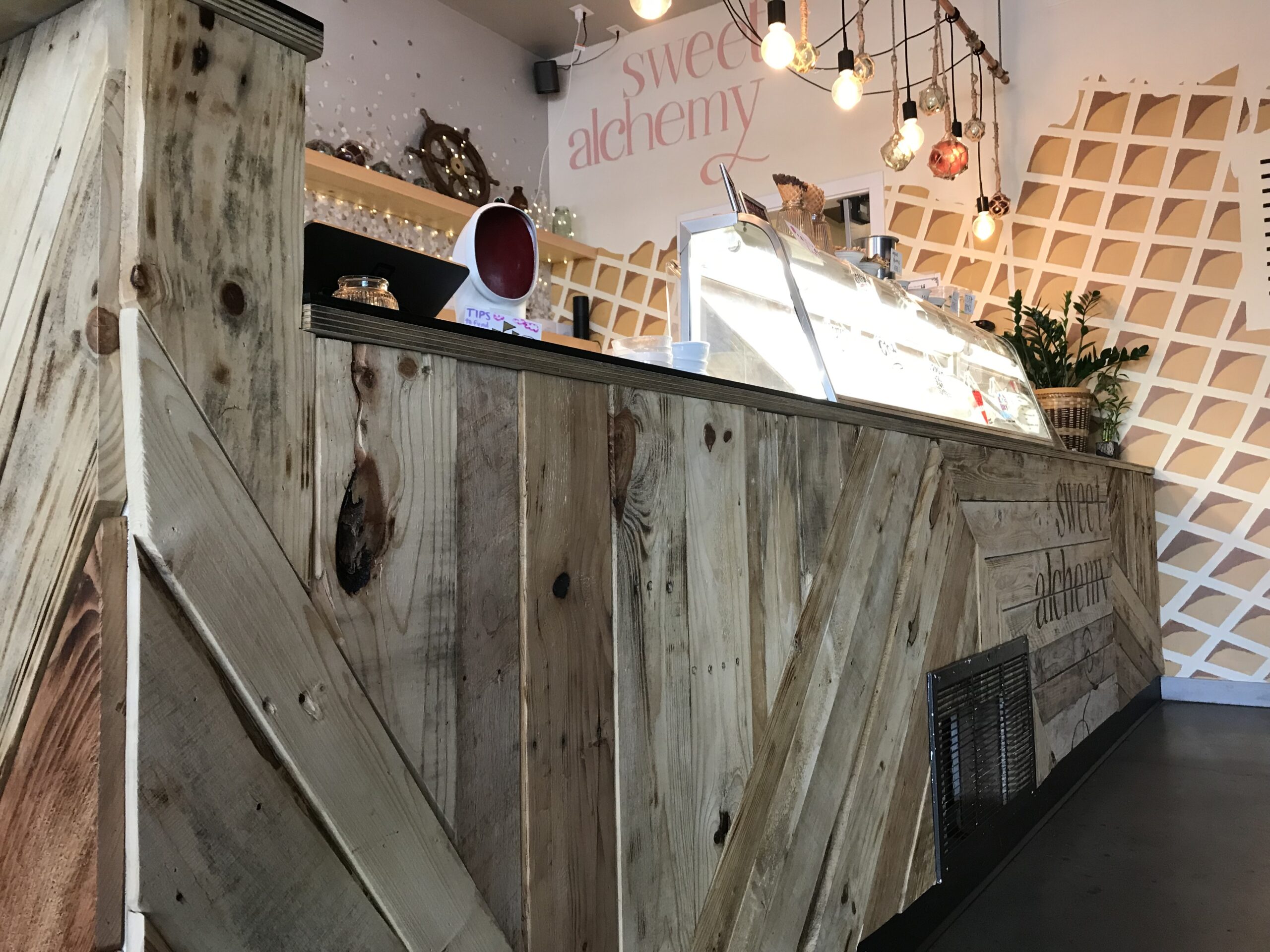
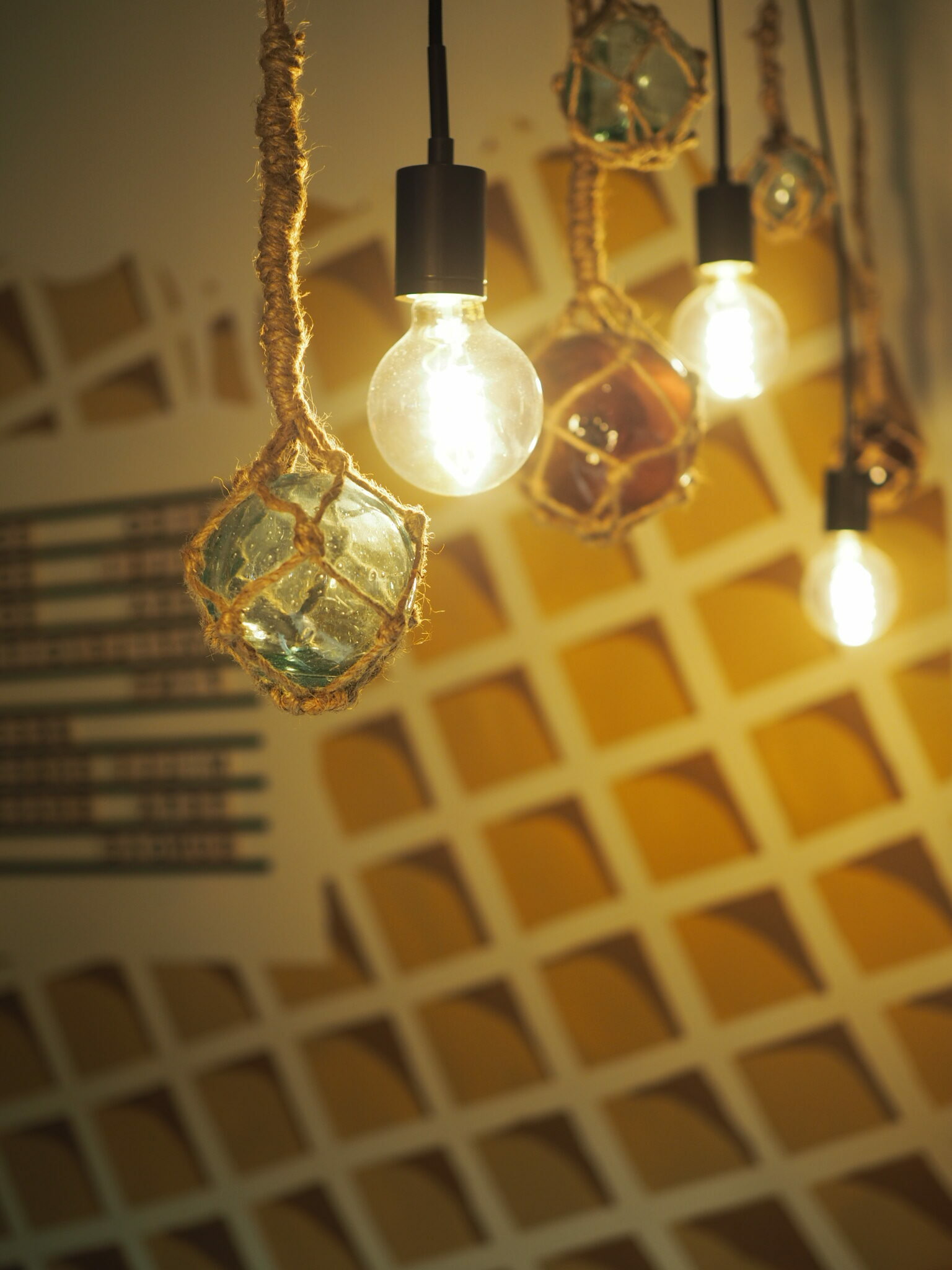
Photos above: In their Ballard shop, the back wall is a waffle pattern that Lois’s employees and daughter painted. Hanging between the lights are glass fishing floats. They are from a vintage ship in Tacoma from a guy who scavenges beaches from Alaska to Oregon looking for treasures. Most are from Japanese fishing boats and the water currents leads them to our PNW shores. Lois’s mom knotted jute twines around them so they could hang them with their lighting fixtures.
Do you have any advice for small business owners who are not sure if making sustainability a core part of their business is worthwhile?
Lois: That’s a hard question. If you are already running a business, especially a food business where there is a lot of waste and you’re trying to switch over to sustainable packaging, that is really hard and I understand that. That’s why I feel like when Seattle made it mandatory for businesses to use compostable materials, I feel like it was too harsh the way that the city put it all on the businesses.
We were the ones who were going to be charged fees and we were the ones who needed to go through our trash when minimum wage had just become $15 per hour. So, now you have to pay someone $15 to go through your trash at night because the city was going to send you a bill for a penalty if trash coming out of your businesses did not meet the criteria. It’s super hard to run a business in Seattle and restaurants businesses have such a small margin of error that everyone needs to understand that it’s going to be really hard.
It’s also really hard for people who are not rooted here or rooted in their desire to make their future of this place better. It’s really hard to get those people to really care about these sustainability related things. Public education, especially in areas where there’s a lot of people who turn over, is important. It can’t be just up to businesses because that is a failing model and that is just putting more stress on our shoulders.
I’m very passionate about trying to divert waste and try to make as much as we can compostable. Actually, our building didn’t even have composting until I took it upon myself to start it for our building. It needs to be all of our efforts put together. We need more awareness and more people like you and more people like me.
If you are a new business, or if you’re even thinking about opening a new business, then you can totally build sustainability into your model. You just need to calculate it all in to your margin. It’s an uphill battle, but it’s something that I think will slowly get better.


